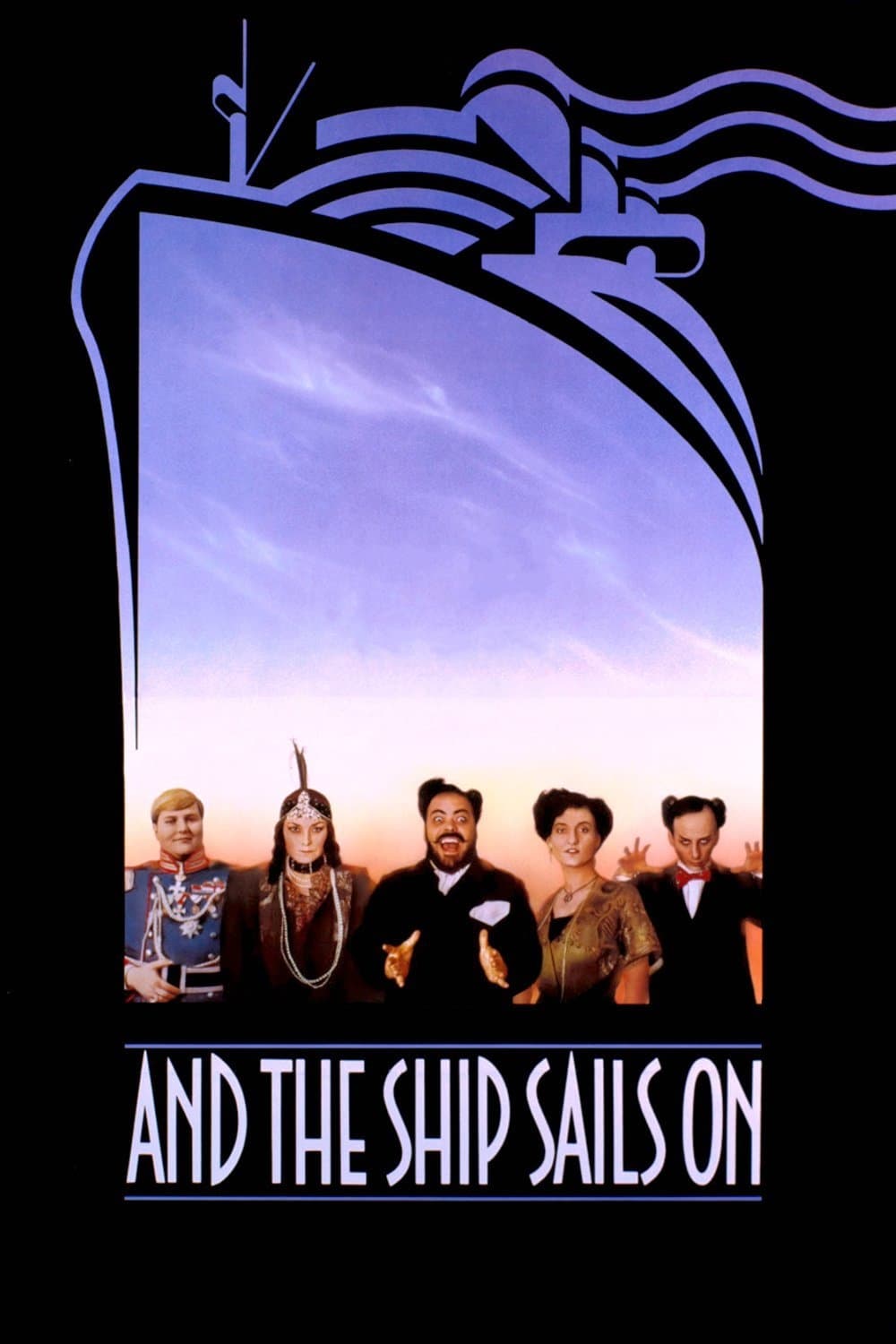
In 1914, a cruise ship sets sail from Naples to spread the ashes of beloved opera singer Edmea Tetua near Erimo, the isle of her birth. During the voyage, the eclectic array of passengers discovers a group of Serbian refugees aboard the vessel. Peace and camaraderie abound until the ship is descended upon by an Austrian flagship. The Serbians are forced to board it, but naturally they resist, igniting a skirmish that ends in destruction.
04 Apr And the Ship Sails On (1983)
Sleeping Chickens
Fellini is a visionary mystic. He sees what he knows before he figures it out. So we have set design, costume design, even character design, before he fills things in with his narratives and allegories. I know this, so don’t come to be disappointed when the stories and allegories do not quite work. It is the sign of risk-taking that he allows his vision to outrace his sense.
Shakespeare thought “The Tempest” would be his last play. The technology of the stage had left him behind, so in a sort of final flourish he built a play that exploited the new special effects, costume and stage technologies, far better than his contemporaries. And within that he placed a surrogate of himself. The play is full of deep observations on the nature of life and reason. Each of these is essential to his purpose, which was to present himself through ideas. Few of these were necessary to advance the story. Much was made of the plays within the play and who controls what elements of them
Fellini similarly believed this to be his final film. At 62, already advised that his heart would give out, he poured everything he wanted to say into this. Yes, he always did that, but this time he used “The Tempest” as his guide. Afterwards he would go to Peru for inspiration.
The film is folded into a literal opera, an opera about the life of a famous opera star, which morphs from small stories (a sing-off in the boiler-room) into an opera of war.
Orthogonally, the film is folded twice into an inner film being made of the event and an outer film of the film. The way we are introduced to these two devices simultaneously is one of the most trilling beginnings in the history of cinema. There is an inner, inner seance.
As a film experience, it is much like “Duck Soup,” where the fakery and frippery is exposed and unremarked on: in the thing itself; in the ridiculous pomp of “royalty;” in the strutting of the artists, all conflated.
I would have been tempted to give this the honour of being one of the two Fellini films I set as fours. That would be because when a man prepares to die, it matters what he says. But it so happens that he thought the same before the two I picked.
Posted in 2010
Ted’s Evaluation — 3 of 3: Worth watching.


No Comments